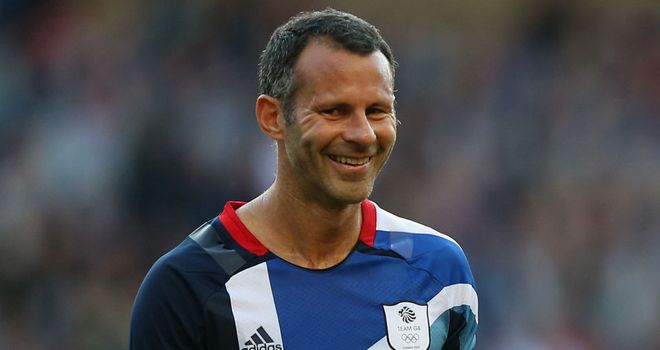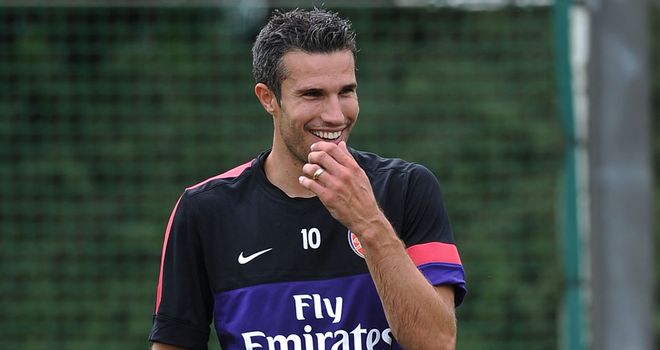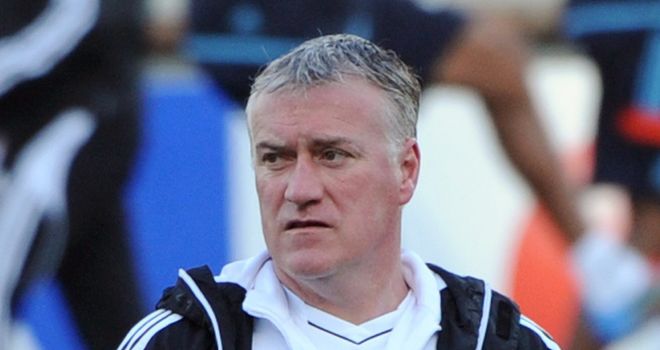
Today sees the release of supernatural vampire comedy “Dark Shadows,”
director Tim Burton’s big-screen adaptation of the gothic soap opera of
the same name that aired from 1966-1971. To mark its release, I thought
I’d take a look at the ten finest on-screen performances of its leading
man: Johnny Depp, the 48-year-old acting chameleon and global megastar
whose 28-year career has seen him playing oddball outsiders, murderous
madmen and actual chameleons in drug-addled dramas, quirky comedies,
gothic horrors and computer-animated family flicks. Let’s begin.
10. Willy Wonka, “Charlie and the Chocolate Factory” (2005)
 The Role:
The Role: A reclusive owner of a magnificent
chocolate factory who one day allows five randomly selected children to
take an eventful tour around his wacky workplace.
The Performance: While no patch on Gene Wilder’s iconic
rendition of author Roald Dahl’s beloved character in the 1971
adaptation, Depp’s performance in Tim Burton’s 2005 version is
nevertheless a scrumptious feast for the eyes and ears to behold, not
unlike the film itself. In playing the wonderfully weird crafter of
candy, Depp dives face-first into his much-explored eccentric side,
channeling the late Michael Jackson, pale face and all, in a leading
performance as deliciously enjoyable as it is utterly bonkers.
9. Gilbert Grape, “What’s Eating Gilbert Grape” (1993)
 The Role:
The Role: A small-town shop assistant who every day
must care for his morbidly obese mother and mentally challenged younger
brother, which gets in the way when love enters his life.
The Performance: Depp is much more subdued than usual
here, stepping aside to let his very talented plethora of co-stars
shine; a 19-year-old Leonardo DiCaprio, for example, was Oscar-nominated
for his stunning supporting performance as Gilbert’s mentally disabled
little brother. Still, the film’s long-haired leading man is quietly
enchanting and subtly appealing as a young man forced into a position of
high responsibility, Depp skillfully drawing us into what is a very
beautiful story and ultimately acting as the glue that holds the film
together.
8. Ichabod Crane, “Sleepy Hollow” (1999)
 The Role:
The Role: An unorthodox, late-18th century New York
City police constable sent to the rural village of Sleepy Hollow to
investigate a strange series of murders seemingly inflicted by a
supernatural horseman bereft of a head.
The Performance: We’re back in eccentric mode now, as
Depp heartily hams it up as a nervous nelly of a police detective whose
skepticism of the supernatural slowly but surely evaporates as the film
progresses and as Ichabod begins to experience bloodcurdling,
otherworldly terror. Depp rather interestingly summed the character up
thusly: “I always thought of Ichabod as a very delicate, fragile person
who was maybe a little too in touch with his feminine side, like a
frightened little girl.” It’s inspired, I must say.
7. Joseph D. Pistone / Donnie Brasco, “Donnie Brasco” (1997)
 The Role:
The Role: An FBI agent working undercover under the
alias “Donnie Brasco” who, in the ’70s, successfully infiltrates a New
York City crime family, but ends up finding himself a little too
involved in the job.
The Performance: Performing side-by-side with the
legendary acting behemoth that is Al Pacino, Depp more than holds his
own as a moustache-sporting, gum-chewing wise guy with greasy, slicked
back hair and a fondness for a brown leather jacket. He wholly convinces
as a man leading a double-life, although one side, his undercover
alias, is heavily smudging itself over the other, his real life. He is
completely endearing from start to finish, offering fleeting glimpses of
deeply buried humanity hidden amongst his hard-bitten, no-nonsense
undercover personality. What’s more, he completely nails the New York
accent.
6. J. M. Barrie, “Finding Neverland” (2004)
 The Role:
The Role: Scottish playwright J. M. Barrie, who,
following a miserable flop, finds himself befriending a widow and her
four young sons, who ultimately serve as the inspiration for what would
become his biggest hit, “Peter Pan.”
The Performance: As J. M. Barrie, Depp is essentially
playing a man-child; apt for the man who created Peter Pan, the boy who
never grew up. As one would predict, Depp conveys Barrie’s famously
childish sense of humour with breathtaking charm and a striking
believability, performing a character whose playfulness is irresistible
and whose undying spirit is truly heartwarming. Much like the film, his
Oscar-nominated performance is absolutely fascinating, endearingly
tender and utterly magical. Also, take it from a true Scotsman: his
Scottish brogue is spot-on.
5. Raoul Duke, “Fear and Loathing in Las Vegas” (1998)

The Role: A kooky, hedonistic journalist assigned to
cover the Mint 400 motorcycle race in Las Vegas who decides to take
advantage of the trip by consuming a vast array of mind-bending drugs
along with his psychopathic friend-slash-lawyer.
The Performance: In “Fear and Loathing in Las Vegas,”
Depp is essentially playing the author of the book upon which the film
is based, a certain Mr. Hunter S. Thompson. In preparation for the role,
Depp spent four months living in Thompson’s basement, learning the
author’s peculiar mannerisms and even having Thompson shave his head for
him. It seems the preparation paid off: Depp is deliriously and
delightfully unhinged in the film’s leading role, playing a crackpot
madman stuck in a near-perpetual state of psychedelic intoxication, be
this from cannabis, speed, acid or a combination of all three. It’s
certainly one of Depp’s most effortlessly entertaining roles, and
unquestionably one of his most instantly unforgettable ones.
4. Edward, “Edward Scissorhands” (1990)
 The Role:
The Role: A robot-slash-Frankenstein’s Monster
living on his lonesome in an abandoned mansion who’s taken in by a
suburban family, the nosy neighbours of whom immediately strike up a
keen interest in him.
The Performance: Following a taste of teen idol stardom
thanks to police procedural TV show “21 Jump Street,” “Edward
Scissorhands” provided Depp with what proved to be his breakthrough
role, and deservedly so. Under the careful direction of Tim Burton for
the first time, Depp was magnificent. Drawing inspiration from stars of
the silent era such as Charlie Chaplin and Buster Keaton, he utterly
convinces as a quiet and shy outsider unaccustomed to everyday life and
frequent human interaction. His character is a tragic figure: an
artificial man yearning to show love but always held back by his
unsightly disfigurement: two sets of blades and knives where his hands
should be. It’s a performance that’s both heartwarming and
heartbreaking, and set Depp on a tremendously promising career path he
would more than live up to and fully indulge in.
3. Sweeney Todd, “Sweeney Todd: The Demon Barber of Fleet Street” (2007)
 The Role:
The Role: A vengeful barber who returns to his
London shop on Fleet Street, determined to slit the throat of the
unscrupulous judge who locked him up in a prison cell for 15 years on a
false charge and snatched his beloved wife and child from him.
The Performance: Who knew that Johnny Depp could sing
so gloriously? In “Sweeney Todd,” which I should mention is based on a
hit broadway musical, Depp bellows out Stephen Sondheim’s richly written
lyrics with an unrestrained passion and vigour so spookily stirring it
should send a cold but welcome shiver up any viewer’s spine. Once again
under the direction of Tim Burton (who’s rarely been better), Depp plays
the part with a steely-eyed glare and a coldly calculating menace that
renders his on-screen presence an irresistible pleasure to behold. And,
with meaty sideburns, sunken eyes, a thick cockney twang and a luxuriant
white stripe running through his jet-black mane, he is a striking
presence indeed, earning himself an Oscar nomination and a Golden Globe
win for the hair-raising performance.
2. Captain Jack Sparrow, “Pirates of the Caribbean: The Curse of the Black Pearl” (2003)
 The Role:
The Role: A roguish 18th century pirate captain who
reluctantly helps a young blacksmith rescue a governor’s daughter from
the clutches of villainous seafarers plagued by a supernatural curse.
The Performance: Disney executives were initially
baffled and confused by Depp’s off-kilter performance, asking him
whether the character was meant to be drunk or gay; chief executive
officer Michael Eisner even complained while watching the film’s dailies
that Depp was “ruining the film.” Director Gore Verbinski, however,
stuck by Depp, and the result, as they say, was history. Depp, clad in a
red bandana and brandishing a sexy goatee and lengthy dreadlocks, plays
Sparrow with a drunken swagger and a flamboyant charm, oozing as much
charisma as there is water in the seven seas. Depp, honoured with his
first Oscar nomination for the role, is now often cited as the main
reason for the film’s unforeseen global success, as well as that of the
three sequels, the franchise having currently made over $3 billion
worldwide. I’d say that’s pretty good for an unapologetic imitation of
craggy-faced “Rolling Stones” rocker Keith Richards – indeed, Richards
made an appearance in the third film as Sparrow’s pirate father.
1. Ed Wood, “Ed Wood” (1994)
 The Role:
The Role: Edward D. Wood, Jr., aka the world’s worst
film director, whose friendship with his aging idol, Hungarian actor
Bela Lugosi, leads him to making his magnum opus, 1959’s “Plan 9 from
Outer Space.”
The Performance: The accidental legend that is Ed Wood
is performed with charm, zest and a strange adorability by Depp in Tim
Burton’s black-and-white biopic of the man widely considered to be the
worst filmmaker in the history of cinema. Depp is nigh unrecognisable as
the notorious anti-genius of ’50s movie-making, completely disappearing
into Wood’s slightly deranged personality, conveying him with a zany,
unbreakable can-do optimism. There’s a sweetness, too, to his
near-obsessive relationship with Lugosi, as played by Martin Landau, who
received an Academy Award for his scene-stealing performance. But it is
Depp who is the film’s real star, and rightfully so: the film sees Depp
at his transformative best and in what many consider to be his
greatest, most remarkable performance.



































































.jpg)

















